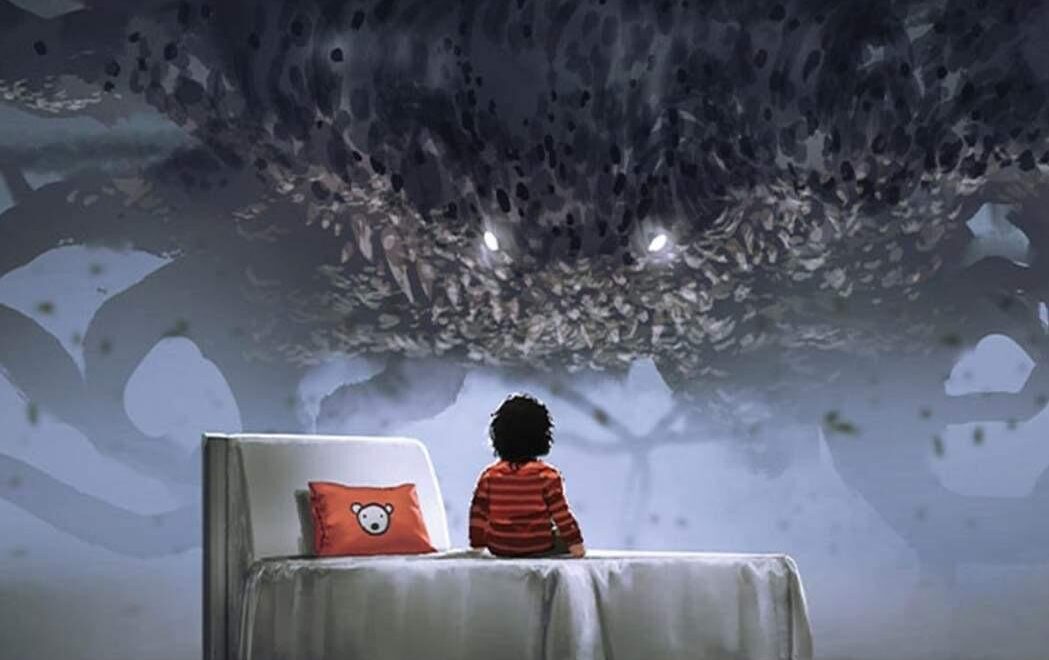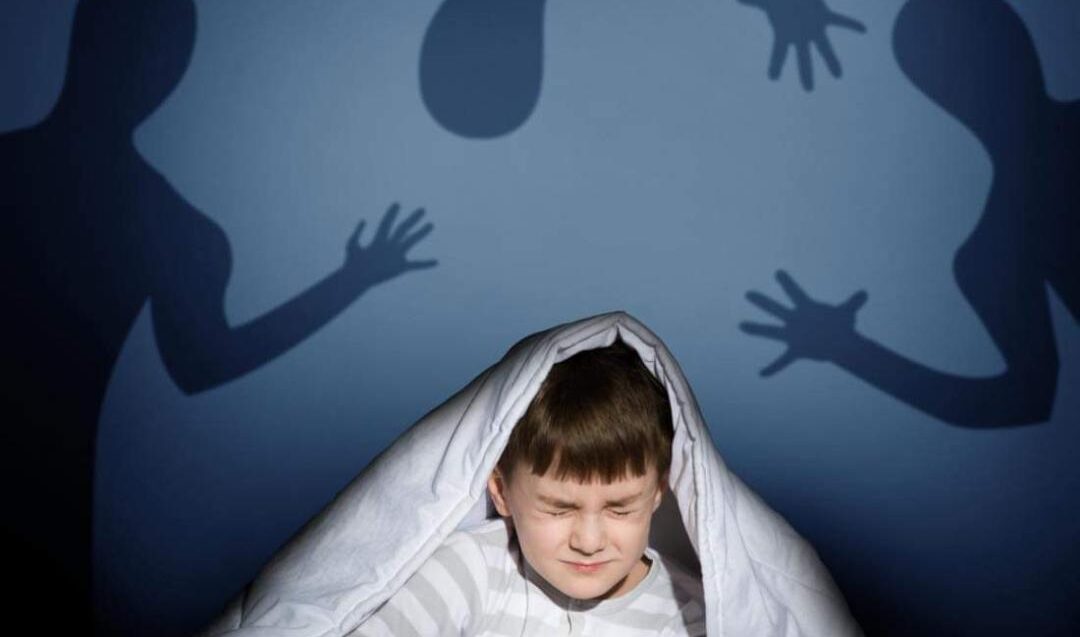By Polina Pallieraki,
Childhood nightmares are a common occurrence in childhood and infancy. They scare all children, but they are more terrifying for the youngest, who do not understand the difference between dreams and reality. This fact stresses and worries parents a lot because the child shows great agitation.
Nightmares are scientifically defined as: “repeated occurrences of prolonged and highly distressing dreams that usually involve threats to the person’s survival, safety, or physical integrity”. You may have noticed that when children wake up from a nightmare, their images are still very vivid and may seem real. That is why the feeling of fear and disturbance prevails. All children, from a very young age, are capable of dreaming. At first, they seem to be dreaming soft dreams, however, as they get older, they are more prone to nightmares.

Now, let’s see the most frequent causes that cause nightmares in children:
- Hearing a scary story: Even if it’s not scary to us.
- Watching a movie/show on TV that scared them
- Reading a scary book
- Fears: Children at the age of 2 start to have fears such as the dark.
- Stress during the day: A busy day can easily stress and strain children.
- Overexertion: If the child was not calm before going to bed.
- Drastic changes in daily life: A change in caregiver or daycare, or a change in parents’ work.
- Tensions in family relationships: Fights between parents/family members.
- Imagination: Children live in a world full of imagination and it is difficult to recognize the difference between reality and their dreams.
Now, as for the ways to deal with it, it is important to remain calm, and apply the following situations:
- Sitting reading or telling bedtime stories that are positive and relaxing.
- Establish a calm sleep routine, with the same schedule every day.
- Ensuring a comfortable and safe sleeping environment.
- Encourage the child to share their nightmares and feel safe talking about them.
- Avoiding foods or drinks that may affect sleep.
- Continuous support and understanding from parents or caregivers.

Usually, when we wake up from a tragic nightmare, we take a deep breath and go back to sleep peacefully. However, this cannot be applied by a little child. Their dream/nightmare is their reality, and it is very difficult to escape from this situation. Many times, parents’ attempts to help or calm the child often make the episode worse and last longer. Because nightmares are so real to kids, it is important to treat the situation properly to calm them down.
Taking everything into account, in my opinion, I consider it extremely important for a child to have a specific sleep routine in order to sleep peacefully and without worries. However, if they are nightmares, they are frequent and the same, if they disturb the sleep of the whole family, if there is a risk of injury, then surely the parents should consult the experts.
References
- Nightmares. raising children. Available here
- Is your kid having nightmares? Who has them and how you can help. health essentials. Available here
- Το παιδί μου βλέπει εφιάλτες τι να κάνω. iatronet. Available here




